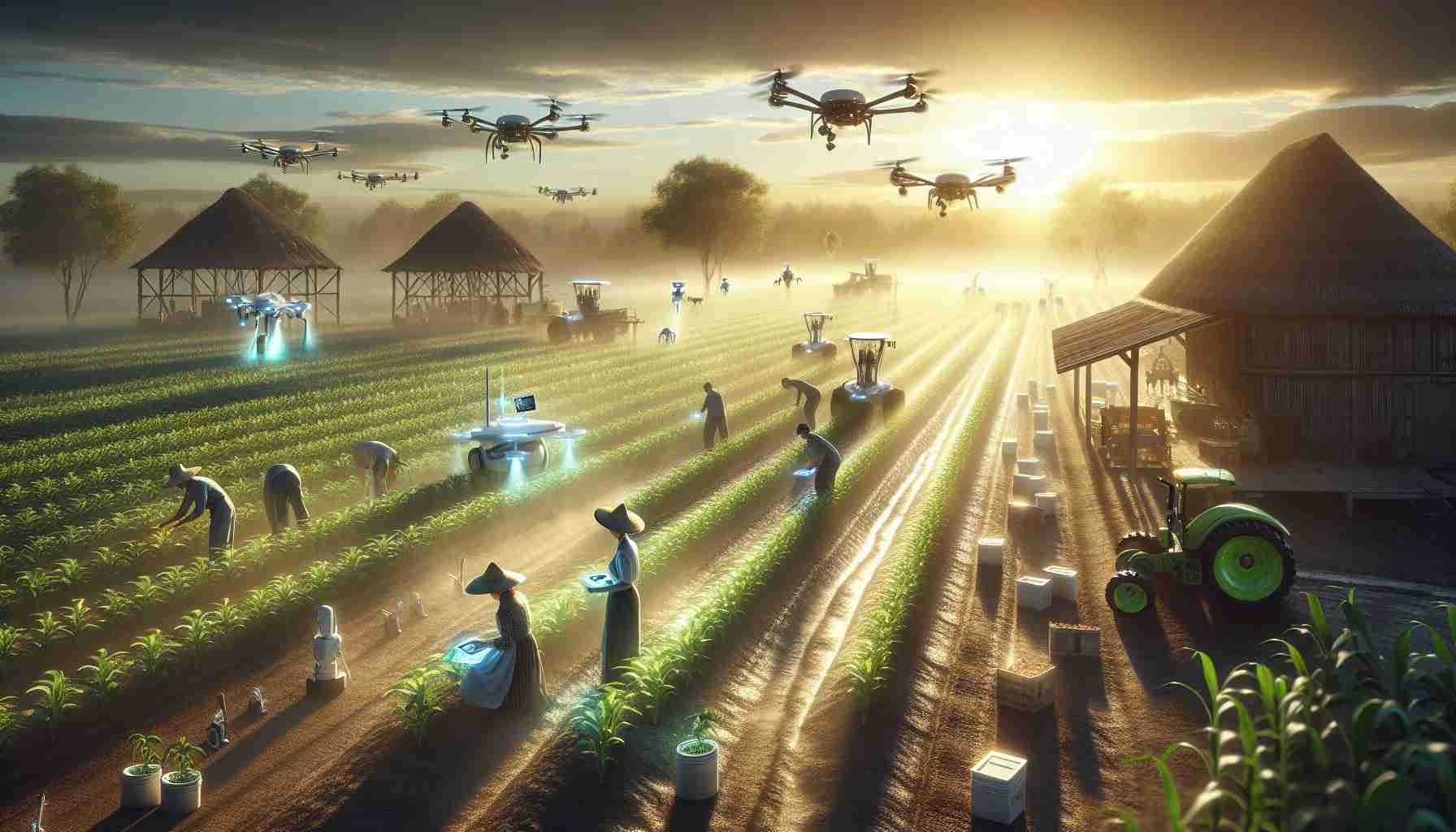Revolutionizing Agriculture with Technology
Rapid advancements in drones, artificial intelligence, robotics, and sensors are reshaping the agricultural landscape. As the industry faces significant challenges due to labor shortages and outdated practices, these cutting-edge technologies are stepping in to enhance efficiency and productivity.
The integration of drones allows farmers to monitor their crops with high precision, identifying issues like pests or disease early on. This aerial surveillance minimizes the need for extensive ground inspections and enables targeted interventions. Meanwhile, robotics are making strides with innovative harvesting machines that can pick fruits and vegetables faster and more accurately than human workers.
In addition, artificial intelligence is playing a pivotal role by analyzing vast amounts of agricultural data. This insight helps farmers make informed decisions about planting, watering, and fertilizing their crops, ultimately increasing yields. Complementing these efforts, sensors provide real-time monitoring of soil conditions and environmental factors, allowing for adjustments that promote optimal crop health.
Technology is not just a temporary fix; it’s a revolutionary force driving agriculture towards a sustainable future. As these advancements continue to evolve, they promise to address long-standing challenges within the industry, paving the way for smarter farming practices. The combination of innovation and agriculture is set to redefine the field, ensuring that farmers can meet the growing global food demand efficiently.
The Future of Food: How Emerging Technologies Are Transforming Agriculture
In recent years, the agricultural sector has begun to experience a transformative shift fueled by the convergence of biotechnology, blockchain, and vertical farming. These innovations are not only addressing immediate agricultural challenges but are also promising long-term solutions that could reshape how humanity approaches food production.
One fascinating aspect of modern agriculture is the use of biotechnology, which enables the development of genetically modified organisms (GMOs) designed for resilience against climate change, pests, and diseases. For instance, drought-resistant crops are increasingly crucial as extreme weather becomes more common due to global warming. While GMOs can lead to higher yields and lower pesticide usage, they also spark contentious debates regarding food safety and the ethical implications of manipulating genetic material. This duality poses profound questions: Are GMOs truly safe for consumption? Do the benefits outweigh potential risks to biodiversity?
The emergence of blockchain technology in agriculture is another groundbreaking development. This technology enhances traceability in the food supply chain, allowing consumers to track the journey of their food from farm to table. With increasing consumer demand for transparency and sustainability, blockchain helps ensure that products are sourced ethically and environmentally responsibly. While it promises greater accountability, challenges such as the digital divide in rural areas and the need for standardized data formats remain significant hurdles.
Additionally, vertical farming is gaining traction as urban centers grapple with limited space for traditional agriculture. By utilizing controlled environments to grow crops vertically, vertical farms can produce food much closer to consumers, reducing transportation emissions and spoilage. However, the initial investment and operating costs are considerably higher than traditional farming methods, leading to questions about scalability and affordability for small farmers.
As humanity continues to innovate within the agricultural sector, it’s essential to weigh the advantages against the disadvantages. On one hand, these technologies promise to enhance food security, reduce environmental impact, and increase efficiency. On the other hand, they raise concerns about the potential loss of traditional farming practices, the monopolization of seeds by large corporations, and ethical considerations surrounding genetic engineering.
In conclusion, as we stand at the crossroads of agricultural evolution, we must ask ourselves: How can we embrace these new technologies to benefit society without compromising safety and ethics? The answers lie in fostering open dialogue among stakeholders, from farmers and scientists to consumers and policymakers. For those interested in exploring these topics further, visit AgFunder for insights on agri-tech innovations and their implications for the future of food.
